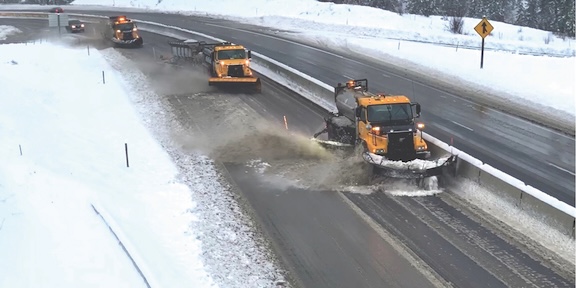A proposed tax package aimed at funding road maintenance and preventing significant layoffs at the Oregon Department of Transportation has passed the Oregon House. The bill, which emerged after a failed attempt earlier this year, narrowly secured approval on September 3, 2023, with a vote of 36-12, largely along party lines. The measure now moves to the Oregon Senate, which is expected to deliberate and vote on it soon.
This legislative effort represents a crucial step towards implementing a $4.3 billion funding plan over the next ten years. Democrats, who dominate the state government, agreed to propose a temporary payroll tax increase to finance public transit. Advocates view the bill as a short-term solution, emphasizing its necessity for ongoing road upkeep, while acknowledging its limitations.
Details of the Transportation Package
The transportation tax package includes several key changes to existing fees and taxes. Notably, the gas tax is set to rise from 40 cents to 46 cents per gallon starting on January 1, 2026, which is projected to generate approximately $90 million annually. The distribution of the gas tax allocates half to the state, 30% to counties, and 20% to cities.
Additional modifications proposed in the package include:
– An increase in annual registration fees for passenger vehicles from $43 to $85 and for utility vehicles from $63 to $105.
– A hike in title fees for passenger vehicles from $77 to $216.
– Doubling the existing payroll tax for public transit from 0.1% to 0.2% until January 1, 2028.
– Increased registration surcharges for electric and highly fuel-efficient vehicles, rising from $35 to $65 for cars with fuel efficiency above 40 miles per gallon, and from $115 to $145 for electric vehicles.
– The introduction of a mandatory road usage charge program for electric vehicles by 2031, transitioning from an optional program that currently charges 2 cents per mile.
Rep. Susan McLain, a key architect of the previous proposal, described the current bill as a “pragmatic budget” essential for preserving vital infrastructure that Oregonians rely on daily. She noted widespread support from city councils and county commissions, emphasizing that the funding is crucial for communities across the state.
Political Divisions and Public Sentiment
The House vote reflected significant partisan divisions, with Rep. Cyrus Javadi, a Republican from Tillamook, voting in favor, while Rep. Annessa Hartman aligned with Republicans in opposition. Javadi acknowledged the public’s reluctance to accept tax increases but argued the necessity of maintaining safe road conditions.
He remarked, “The cost of doing nothing is far greater than the cost of doing something.” Javadi highlighted the risks posed to residents in coastal districts, where highway closures and hazardous conditions could jeopardize safety.
Conversely, Rep. Hartman expressed concerns for working families who struggle with financial choices, such as prioritizing vehicle registration over essential needs like groceries. House Republican Leader Christine Drazan presented a document stack containing over 4,300 pieces of public testimony, with 94% opposing the tax increase. She emphasized the importance of considering these voices in the legislative process.
Critics of the proposal, including Rep. E. Werner Reschke, argued that raising taxes amid a projected state deficit is misguided. They cautioned that while the bill addresses immediate needs, it may lead to worse financial challenges in the future.
In contrast, Rep. Paul Evans insisted that immediate action is vital, likening the situation to a patient in dire need of medical attention. He stated, “We can all sit around and watch the patient die,” advocating for prompt intervention to prevent further deterioration of Oregon’s transportation infrastructure.
As the bill heads to the Senate, its future remains uncertain, but the pressing need for infrastructure funding has elicited significant discussions among lawmakers and constituents alike.
